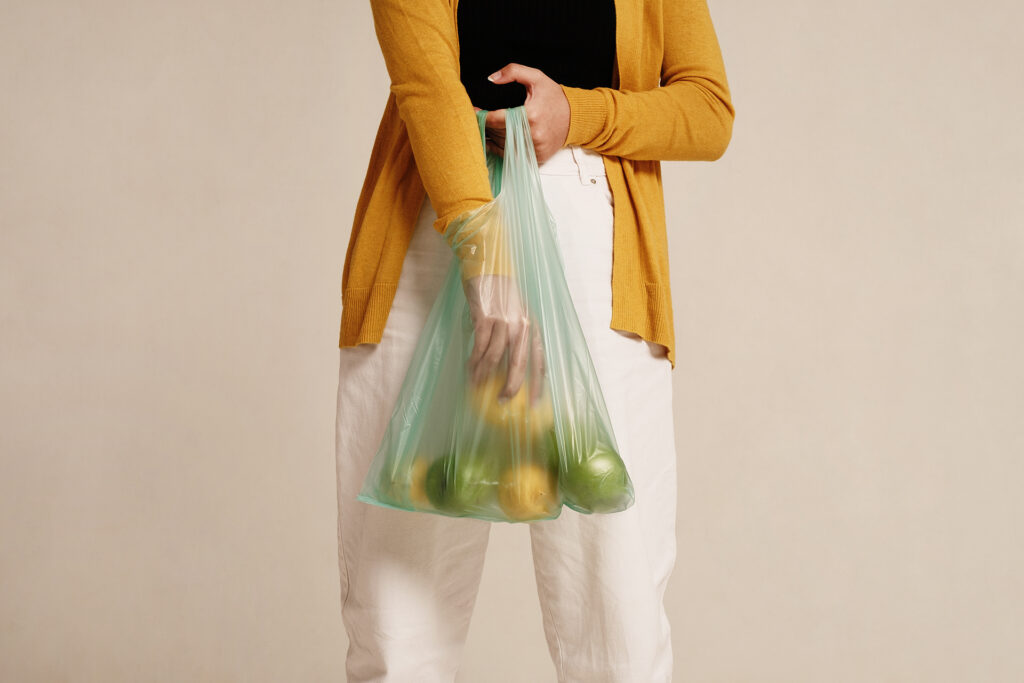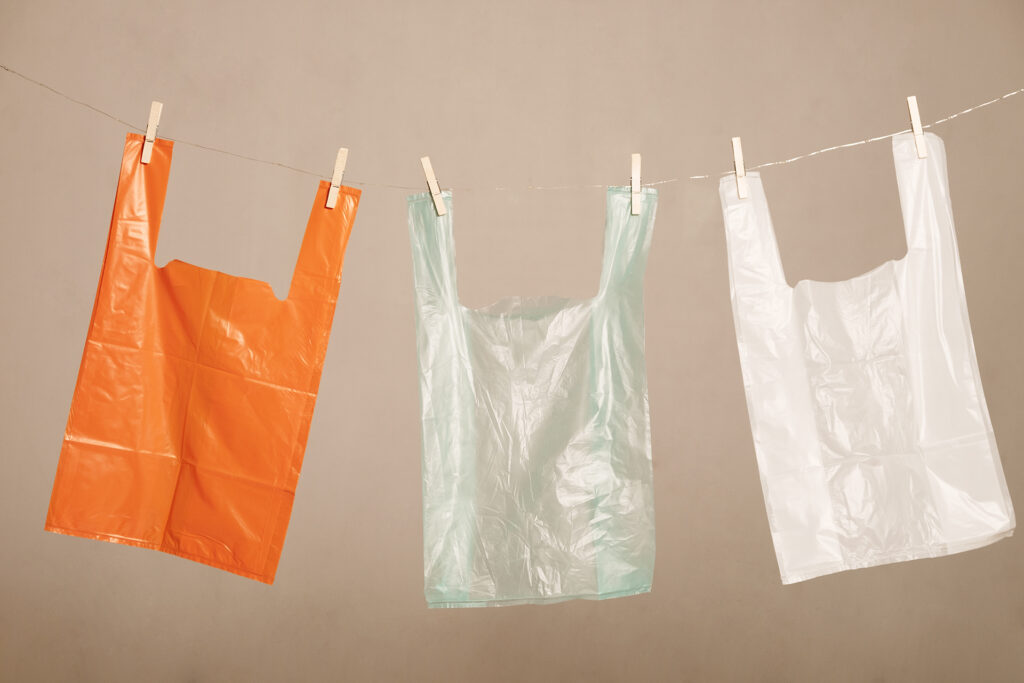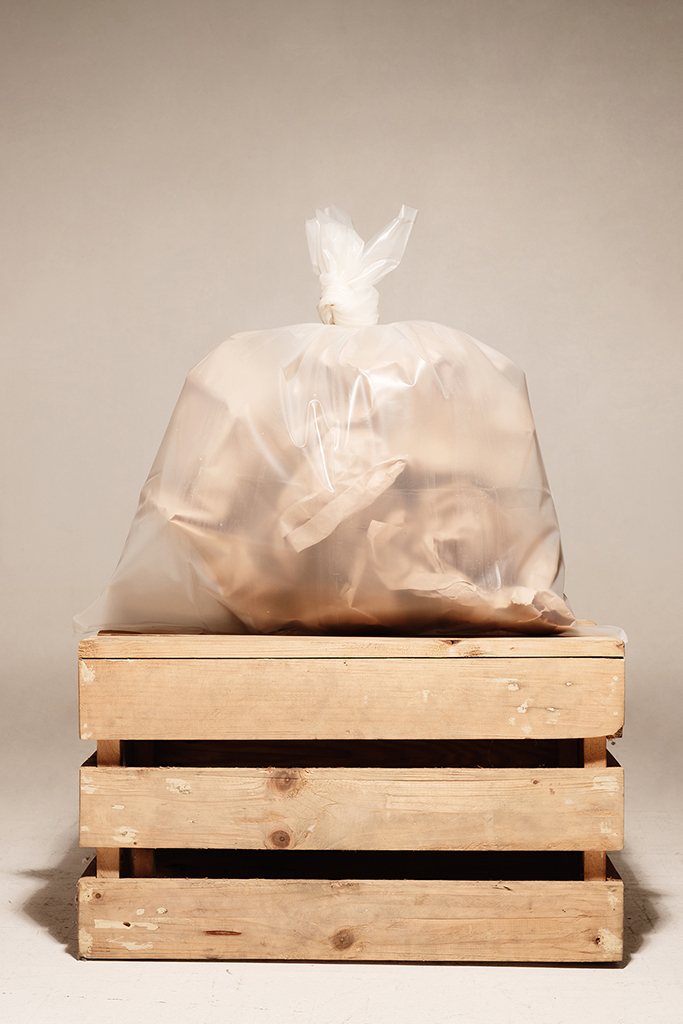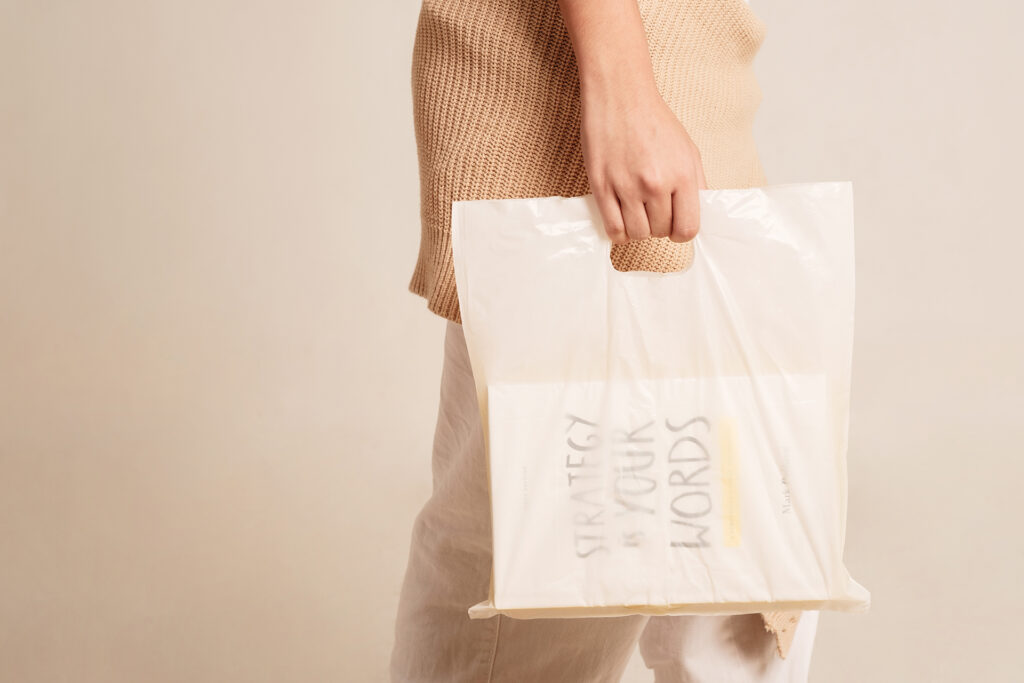Oikos’ Bags Are A Sustainable Approach To Tackling Plastic Pollution
Oikos from the Philippines addresses the rising demand for eco-friendly alternatives to synthetic plastic bags by producing bio-plastic bags made from cassava and corn.
20 November 2023
Share this exclusive content from Saladplate

Photo caption: Oikos bags are 100% plant-based | Photo credit:Oikos
Demand for environment-friendly single-use products and solutions has risen in recent years because of both government policy and increased consumer awareness of environmental issues. Interestingly, a survey from McKinsey & Co., tells us that 66% of all respondents and 75% of millennial respondents say that they consider sustainability when making a purchase.
There is a definite rise in the use of bio-plastic products to replace environmentally damaging synthetic plastic bags. We take a look at Oikos, a Filipino company, that provides some of the best choices in this field.
Oikos makes bags that look and feel like disposable or single-use plastic bags but are actually made of either cassava or corn plant matter and vegetable oils. Both types are designed to dissolve in around six months. These can be used in compost, have 0% plastic, and leave 0% residue in the environment. The cassava bags are also designed to dissolve after being exposed to water at around 80°C temperature, while the corn bags are more water resistant. Oikos offers them in the form of shopping bags, mailer bags, laundry bags, and trash bags.
On its website, Oikos reminds us that plastic bags were originally introduced as an eco-friendly alternative to paper bags, given that paper production involves cutting down trees. So it is ironic that paper bags, whose production contributes to deforestation, were later used to replace plastic bags.

Photo caption: The cassava bags are also to dissolve after being exposed to water at around 80°C temperature, while the corn bags are more water resistant.
Photo credit: Oikos
Another lost intention was that plastic bags were meant to be reusable; thus, it is also quite unfortunate that most plastic bags are thrown away after a single use. Bio-plastic products like Oikos’ bags ensure that, if utilised as a one-time-use bag, they will decompose and no longer be harmful to the environment.
Plastic bags are among the biggest pollutants in the world. You not only find them floating in the sea or scattered over fields and landfills, but even wildlife has been known to ingest them, resulting in injuries or death.
The need for a plastic bag alternative is certainly urgent.
Knowledge of this emboldened founders Lizzie Guerrero, Faith Nacarato, and Dan Nacarato to get into the eco-friendly bag business. They started out by helping a South American company, one that was already a maker of eco-friendly bags, that had been looking to expand to the Asian market. Having discovered that the major supplier of the product’s raw materials was in Southeast Asia (though not in the Philippines), the three decided to strike out on their own and come out with their own bag products.
“We were just a group of friends pooling our resources together. There are no venture capitalists helping us here,” says Nacarato, who is Oikos’ Chief Client Officer.

Photo caption: Oikos offers them in the form of shopping bags, mailer bags, laundry bags, and trash bags. | Photo credit: Oikos
Oikos is an ancient Greek word which can mean the family, the family’s belongings, and their house. The word component “eco” was derived from it. In that sense, Oikos wants to help the Earth, humanity’s “oikos” or home.
Though Oikos has its manufacturing facility in Bulacan, it still needs to import raw materials. The company has been exploring options to make its operations fully Philippine-made. It has been reaching out to the local scientific community to develop means to create the raw materials locally. This could also serve as a way to help the Philippines make up for being the third largest plastic bag polluter in the world.
Nacarato believes the food and beverage industry can greatly benefit from Oikos’ eco-friendly products because of both policy and consumer demand. “Clients and customers come to us because they are already aware, they are already seeking alternatives to plastic,” she says.

Photo caption: As demand for eco-friendly products picks up, Oikos is aiming to meet that demand by making their products more affordable. | Photo credit: Oikos
Oikos on its website cites Kantar’s 2020 report that says more Filipino consumers these days prefer eco-friendly brands. Demand for their products is also coming from Singapore, which is known to be a bastion of strict environmental policy in the Southeast Asian region.
As demand for eco-friendly products picks up, Oikos is aiming to meet that demand by making their products more affordable. They also aim to reach the point where their products are right beside regular plastic bag products in any store.
Nacarato also mentions plans to further expand their product lines, seeing a gap in the current market that they could fill. “We learned about banana peel and seaweed for plastic bags. Why isn’t anyone doing this in the Philippines? We’re being left behind. Probably because no one is focusing on it.”
Oikos continues to make its mark on the bio-plastic bag market, powered by both a thirst for growth and a genuine love for the environment. “Nation-building is in our minds as well. It’s a passion project and an advocacy as much as it is a profitable business,” says Nacarato.
Author: Rhia Grana
Rhia Grana has been as a lifestyle journalist in the Philippines for over two decades. She currently works at ANCX, the lifestyle and culture website of ABS-CBN News Channel, a prominent news organization in the country. She’s passionate in writing about interesting personalities, culture, trends, health, and travel.



